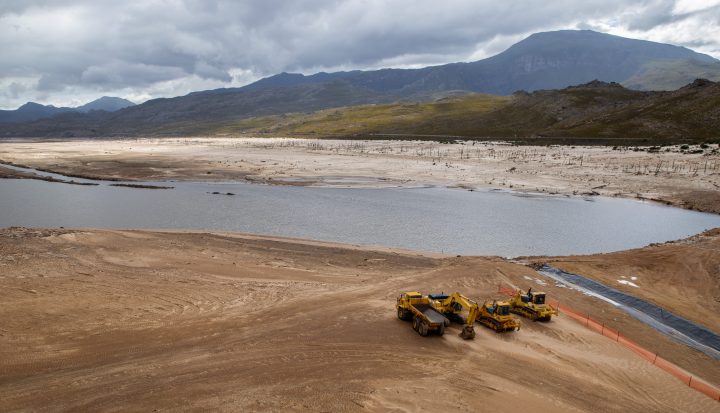GROUNDUP
Urgent action needed to curb Cape Town’s high water consumption, urges expert

Dam levels are set to fall below 50% in March. This time last year they were 80% full.
Earlier this month, Cape Town’s average water usage exceeded one billion litres a day for the first time since 2014. The City of Cape Town’s current water usage target is 850-million litres a day. Last week, usage averaged 950-million litres a day.
Dr Kevin Winter, from the University of Cape Town’s Water Futures Institute, says the high demand is concerning and water restrictions should be introduced. He says the best way to reduce water consumption is to raise tariffs.
“Water is too cheap,” says Winter.
Cape Town currently has no water restrictions and only a very small number of households that consume a lot of water pay a higher tariff.
“It is odd that we get these lags and lack of inertia in raising the levels. We need to react much faster. Cities need to lead in these circumstances; it’s a dynamic decision,“ Winter says.
Cape Town’s dam levels are at 56.8%. This time last year, the dams were more than 80% full. Dam levels in Cape Town are projected to fall below 50% next month. Dam levels for the Western Cape were at 49.4% this week.
Winter says that dams under 50% take longer to fill up and less water is released into rivers, putting pressure on sensitive ecological systems and the water used for agricultural purposes.
The current water consumption is too high for a growing city with increasingly unreliable rainfall, he says.
The South African Weather Service has forecast slightly above-average rainfall from March to May, but Winter says there is a chance this modelling is wrong.
Visit Daily Maverick’s home page for more news, analysis and investigations
Acting Mayoral Committee Member for Water and Sanitation Siseko Mbandezi told GroundUp that “the City will be in a vulnerable position if we do not reach the proactive water target”.
Mbandezi encouraged residents to use water sparingly. “Water restrictions would be likely if 2023 winter rainfall is below average,” he said.
“Drought cycles will become more frequent as the effects of climate change become more intense and we suspect that there will be approximately 25% less water available in the Western Cape Water Supply System over the next 30 years.”
Growing city
The population of Cape Town, currently about 4.6-million, is expected to grow to 5.5-million by 2030. The city will need an additional 300-million litres a day to accommodate that growth.
But according to Winter, ageing infrastructure and slow investment in new water sources pose a threat to the sustainability of the city’s water supply.
Winter says that an “active development scenario” is needed to ensure the city’s water reticulation system, which consists of more than 11,000km of piping, is able to meet the growing demand.
“This is a financial burden for citizens, but vital for the development of the city and its resilience and sustainability,” says Winter.
To secure new water sources, the City has allocated R5-billion over the next eight years. Medium-term initiatives include extracting water from the Table Mountain aquifer, which yielded its first water in 2020, and the injection of treated wastewater into the Cape Flats aquifer, which is due to start later this year.
Winter emphasises that the Cape Flats project has multiple benefits, “provided it is implemented with a robust monitoring system and can discharge good quality water into the aquifer”.
Mbandezi told GroundUp that the City is reducing water wastage through proactive leak detection, pipe replacement, and pressure management.
The City is also clearing alien vegetation to reduce water losses by up to 55-billion litres a year. DM
First published by GroundUp.






















 Become an Insider
Become an Insider
Cape Town needs a reboot:
Stop importing virtually all your water from the Boland.
Stop defecating in this water and dumping it untreated in the ocean.
Start capturing most of your rainfall instead of 99% going straight to sea.
Start treating your sewer and recycling it. Learn to live with reservoirs and waste water treatment works where you live, like every other city, instead of pretending that water comes from a tap.